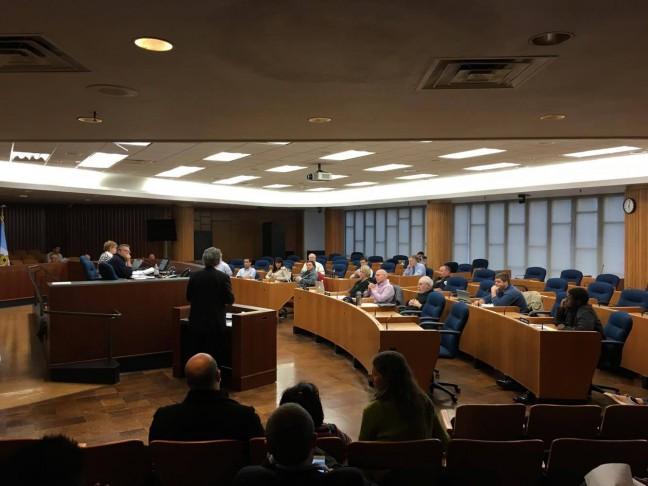Mayor Paul Soglin came before the Alcohol License Review Committee Wednesday to discuss the impact of liquor-licensing on the commercial makeup of State Street.
Soglin asked committee members to exercise discretion in licensing eating and drinking establishments on State Street until a comprehensive study can be conducted on the welfare of the street’s retail scene.
The mayor’s proposed study aims to assess the issues retailers on State Street face and find ways to revitalize retail on the street.
The study is expected to begin in April 2017 and will take roughly one year to complete. In the mean time, the mayor wants the ALRC to “hold off” on liquor license issuance somewhat until the study can be completed, as the issuance of liquor licenses enables popular eating and drinking establishments to take over State Street and crowd out retailers.
“The bottom line of what I’m trying to accomplish is that until we get the study done and know what the solution is there’ll be no further loss of retail in the area,” Soglin said. “As long as we’re issuing liquor licenses, it is not a free market.”
Retail on State Street has been in decline for the last 15 to 20 years as restaurants and bars have gradually taken over the street, Soglin said.
City grant program will help State Street retailers pay for renovations
Soglin said adequate shopping can be hard to come by on State Street nowadays.
“If you were to take a walk on State Street today as opposed to 10 or 20 years ago and say to yourself, ‘I’d like to do some shopping today,’ where would you shop?” Soglin said. “The bottom line is that as you move to Francis, to Gilman, to Gorham and Johnson, the shopping is very sparse.”
Soglin said the decline in retail on State Street can also be attributed to successes on the city’s part in other areas.
State Street’s retail scene first began to wane in the early ’70s when East Towne Mall and West Towne Mall were built, he said.
“If you reflect on the evolution of the street, one of our problems is our success,” Soglin said. “When we came out of the ’60s and ’70s, State Street was under siege, not only by protests, but by the opening of the shopping malls.”
Soglin said many of the eating and drinking establishments taking over State Street belong to national chains and are crowding out locally owned food companies.
In closing, Soglin warned the committee the preservation of State Street’s retail is of the utmost importance.
“To have a healthy downtown we must have healthy retail,” Soglin said.
Soglin’s speech was followed by routine proceedings: new and preexisting alcohol licenses were reviewed for several eating and drinking establishments and multiple changes of agency were approved.













